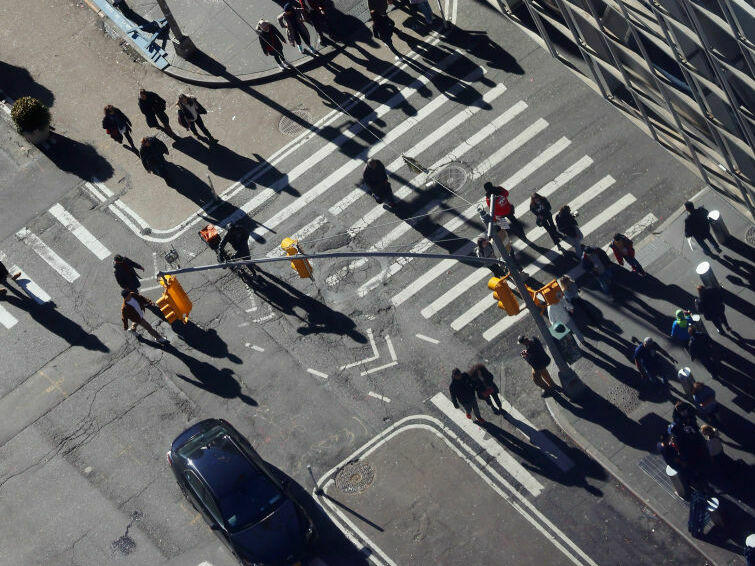Section Branding
Header Content
Pedestrian deaths fell modestly last year, but there's still a safety 'crisis'
Primary Content
WASHINGTON — The number of pedestrians killed on U.S. roads declined by 4% in the first half of last year, according to preliminary estimates published Tuesday by the Governors Highway Safety Association.
But pedestrian fatality numbers are still far above their 2019 levels.
"While we've made some modest progress, there's still obviously quite a bit of work to be done," said Russ Martin, the GHSA's senior director of policy and government relations. "We're still way above pre-pandemic levels of pedestrian deaths."
Pedestrian fatalities soared to a four-decade high in 2022, before declining slightly in the first half of last year.
According to the GHSA's projections, 3,373 pedestrians were killed in motor vehicle collisions between January and June of last year. That's a decline of about 150 pedestrian deaths from the prior year, but still over 400 more than the same period in 2019.
The rate of pedestrian fatalities per 100,000 people also declined slightly, from 1.04 in 2023 to 1.01 in 2022. But that's still far higher than the 0.90 figure for 2018 and 2019.
The projected number of pedestrian deaths in the first half of 2023 varied widely from state to state. California reported the largest drop in fatalities, with 66 fewer than the previous year.
A number of other states also saw double-digit drops, led by Arizona, Georgia and Virginia. The biggest jumps in pedestrian fatalities came in Colorado, Alabama, South Carolina and Tennessee.
As in past years, states in the Sun Belt tended to have a higher rate of pedestrian fatalities than those in the northern half of the country.
Martin says the overall decline in pedestrian fatality numbers could in part be a result of cities and states adopting more pedestrian safety measures.
"Since the pandemic has occurred, I feel like there's been kind of a revolution in the way that we look at traffic safety in this country, as we're thinking about the larger system rather than trying to address symptoms," Martin said.
Many cities have adopted an approach known as Vision Zero, which aims to make traffic collisions less deadly by lowering speed limits and making automobile lanes narrower, while adding protections for pedestrians and cyclists. The U.S. Department of Transportation has adopted a National Roadway Safety Strategy, and is handing out billions of dollars in grants to support it.
One the other hand, Americans' cars and trucks keep getting bigger and heavier. And research suggests that vehicles with higher front ends and blunt profiles are significantly more likely to cause fatalities in crashes with pedestrians than smaller cars and trucks.
Despite last year's decline in pedestrian deaths, Martin is reluctant to say that they have peaked.
"We still have a major pedestrian safety crisis, and we're trying to see what we can do about it," he said.

